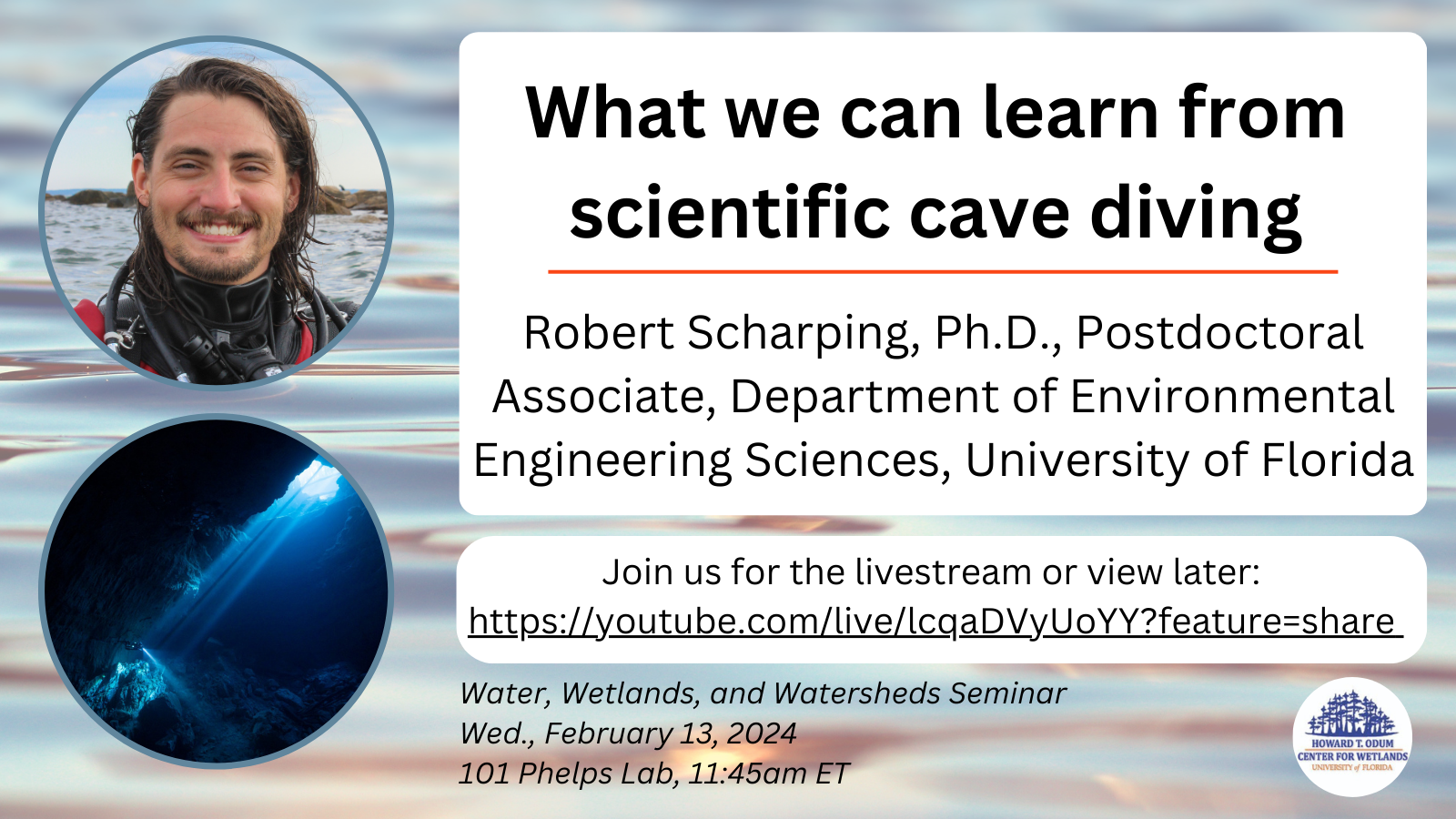
Robert Scharping, Postdoctoral Associate, UF Department of Environmental Engineering Sciences
Join us for the livestream February 13th, 11:45am ET: https://youtube.com/live/lcqaDVyUoYY?feature=share
(Please visit our YouTube channel main page for the stream if there are any issues with the direct link.)
ABSTRACT
Advances in underwater cave exploration have unveiled a new scientific frontier. Divers using modern techniques and equipment—such as closed-circuit rebreathers, sidemount configurations, diver propulsion vehicles, and helium-infused breathing gas—continue to push the limit of human understanding further into the Earth. As explorers probe into aquifer conduits, they lay a path for cave diving scientists to ask and answer new research questions. In this seminar, I’ll present a synthesis of my own research and that of other scientists using cave diving techniques to study fundamental questions of biogeochemistry, microbial ecology, animal evolution, and aquifer hydrogeology, as well as applied questions about resource management and ecosystem conservation.
BIO
Dr. Robert Scharping a UF postdoctoral associate working with Dr. Elise Morrison in the Department of Environmental Engineering Sciences. The focus of his research is the ecology of aquifers, springs, and underwater caves. Of particular interest to him is how microbial chemosynthesis occurring in caves influences the nutrient and carbon dynamics of coastal springs. His field work involves using safety-oriented cave diving practices and technical equipment to collect samples, deploy instrumentation, and explore sites. Dr. Scharping’s research has been funded by the National Speleological Society, the Cave Research Foundation, the Woods Hole Oceanographic Institution, and the U.S. Geological Survey.
POSTCARD
